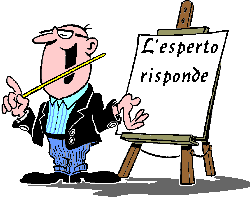
grazie
1. 'The Suburbs'. It was the first song made public through their websites. A part-time surprisingly pop subject with a piano to the John Lennon and a voice sings about the suburban world and the desire of "having a daughter where young / take the hand and show you some beauty".
2. ' Ready to Start '. Another of which can be heard on the internet. Sounds like the typical sound of Arcade, saltarina, battery wall a powerful bass and synthesizer. Compared with the live version of the song, the study sounds a little more melancholic and tristona. The change of pace at the end is also the House brand.
3. 'Modern Man'. Lo más pop que ha hecho nunca la banda de Win Butler. La combinación de guitarra eléctrica y acústica puede recordar incluso a The Cure. Hay órganos presentes, pero suenan más atmosféricos y no tan presentes como en 'Neon bible'. La letra lidia con las desventuras del hombre moderno.
4. 'Rococo'. La primera balada del álbum. Una vez más, Win canta sobre su recién adquirida obsesión sobre el hombre moderno: "Iré al Downtown y hablaré con los hombres modernos". El estribillo repite una y otra vez la palabra "rococo" con una curiosa pronunciación que hace parecer que están diciendo "coco-wah". Acaba por todo lo alto en un delirio de violines, hapsichords y guitarras distorsionadas.
5. ' Empty room '. One of the shorter and faster to the album songs. Régine takes the lead for the first time trying to tame a frenetic melody directed by some violins played at full speed.
6. City With No Children. Pop-rock with classical flavour. The melody is optimistic; the letter, not so much: "I broke the arm waiting for your feelings /Me would like to have time/before beloved of our time exhausted".
7. "Half light I '.After part overactive disk low pace with topics like this, paused and sung by Régine. String section again to take the leading role.
8 . "Half light II (no celebration) '. The second part of the song, this time with loud guitars and a subtle electronic programming accompanying the melody, offers a new detail Arcade Fire uses a couple of moments of the disk.
9. 'Suburban War'. Otra canción lenta en la que dominan las acústicas. El tono es de elegÃa, aunque uno no sabe si Win Butler siente cariño o desprecio de esos suburbios de los que habla. Pese a todo, hay espacio para el romanticismo: "Demos un paseo y vayamos a ver la ciudad esta noche/no hay nada que hacer/pero no me importa si estás a mi lado". La última parte es uno de esos subidones épicos que tanto le gustan a los canadienses.
10. 'Month of may'. When more rocker and basic disk and the Repertoire of Arcade Fire. A guitarrera song and simple in that the band autoreferencia. For some, has a Pixies.
11. ' Wasted hours '. In appearance, is a simple with folk speak aftertaste lost hours ditty without knowing what to do or if exit or not. What happens is that, even when they are so crystal like this melody, are able to resist adding body arrays that eventually it darken everything.
12. ' Deep blue '. Perhaps more loose from the LP time. This or that the listener is coming to the end a saturated. Win uses falsetto while tells his feelings on the passage of time and the turn of the century.
13. ' We used to wait '. The first single from the album to become a classic theme of the Septet Songbook. The letter sends a nostalgic message when "used to write letters / sign my name / and sleep at night".
14. ' Sprawl I (Flatland '). As already happened with the two "Half light ', is a song divided into two parts. The first is a purely beautiful work, and more intimate when preceded by a soft sound of rain. Excursions by car through the city images appear once again: "drove until you find the House that we used to sit / but I could not read the number in the dark".
15. ' Sprawl II (Mountains beyond mountains) '. Cut more striking and surprising everyone and certainly more to hit 'fans' song .It is purely pop track with a rhythm that is almost, almost dance. The sings Régine and has a far from Blondie's "Heart of glass' air. Or something.
16. "The suburbs (continued) '. The album ends as it began, with a short 'reprise' tune ' The Suburbs ', this time in orchestral version (first) and canturreada for a few bars later.
Some of it is in spanish.









 grazie
grazie













